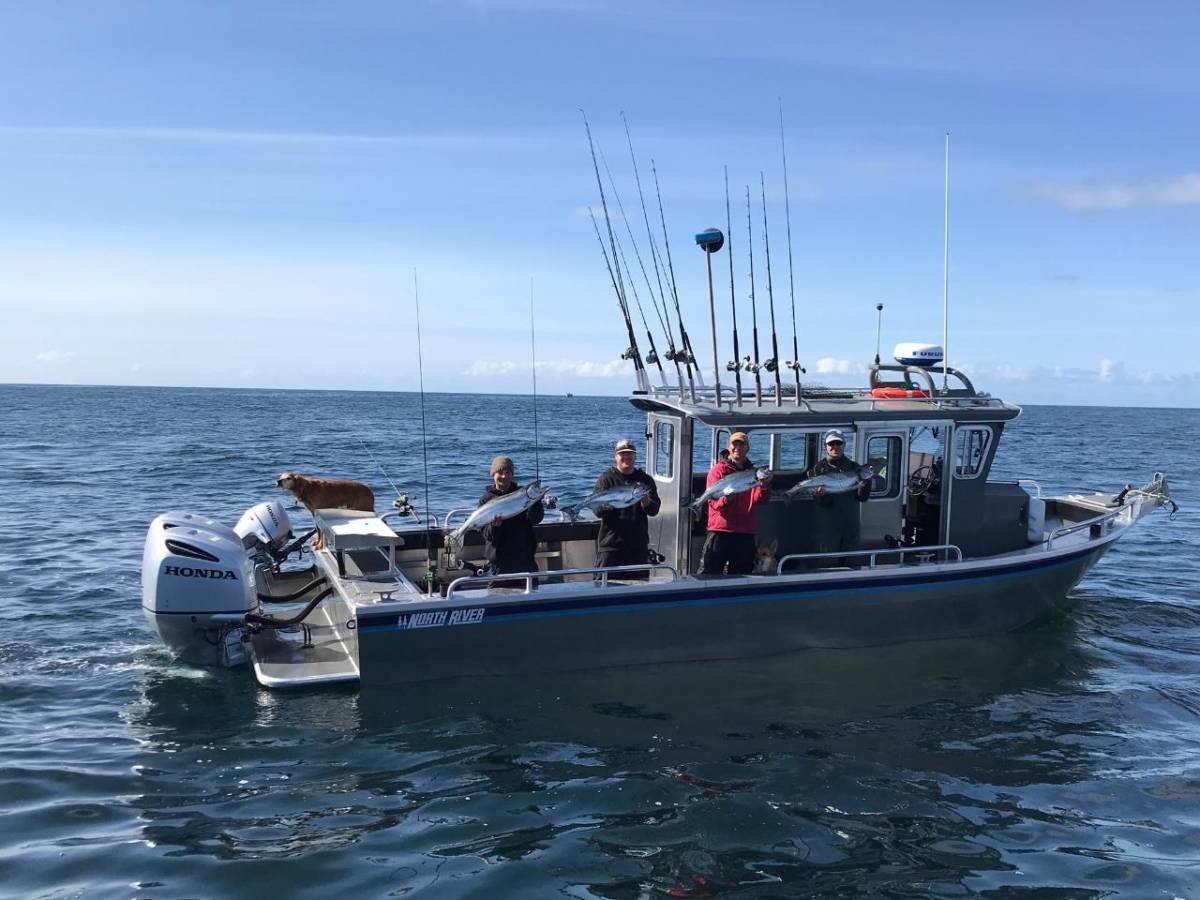 We christened Petrel, the first outboard powered AU boat, in the spring of 2019. Shiny and new, she drew a lot of attention at the dock. For many of our curious customers the main question was “why outboards?” Here’s the short answer and a quick review of the new boat after one season:
We christened Petrel, the first outboard powered AU boat, in the spring of 2019. Shiny and new, she drew a lot of attention at the dock. For many of our curious customers the main question was “why outboards?” Here’s the short answer and a quick review of the new boat after one season:
Why:
- Refining our product: We took a long look at the trade-offs between outboard and diesel. What we saw was a very close call with advantages to each. At AU, we’re always looking to improve our product and decided to give outboards a chance.
- Frustration: Volvo’s D6 diesels are a wonderful engine. Smooth, smoke-free and efficient. Unfortunately, when the power leaves the engine we’ve run into short lifespan on the expensive drives and expensive disruptions from the intermediate bearing (I know – what the hell is that?)
What we’ve learned so far as reported from the point of view of the captain and management:
According to Captain DJ, Petrel’s skipper:
“People love the side door, deck space and cabin layout. Also, they like that she’s quieter. From my point of view, it’s nice to be able to raise the leg of the outboard out of the water and avoid getting line in the props. Weren’t forced to take fish around the bow to avoid props. It’s also nice to have cabin heat that doesn’t require us to run the engine. All in all, it’s very comfortable, quiet, and warm. Clients love the deck space and fishing room.
The main downside is the way she handles in a tight following sea. She’s a bit bow heavy and tends to plow down into the waves much more than the diesel boats which are nearly bullet proof in a following sea. I’ve got to pay a more attention in that situation.”
Captain Chuck:
“We knew this boat will burn more fuel than the diesel, by a bit. What we’re watching is how much of the added fuel costs are offset by other savings. We had only major mechanical problem with the outboards and that was due to a faulty installation of a wiring harness. There also seems to be an issue with the throttle assembly that causes one of the engines to shut down after coming off step on occasion. It starts up again, so it’s an annoyance, not a safety issue. We expect to fix this over the winter.
We like the general feel and ride on Petrel. She is slightly faster than our diesel boat, She rides well under most conditions except for bigger following seas. The outboards lack the low-end torque of the diesel engines and she’s a little heavy in the bow. Driving in a following sea requires close attention to avoid burying the bow and the lack of low-end torque makes it harder to power up the back of a wave.
Is it a better boat for AU than the diesel version? The comfort features are better – side door, electronics, cabin heater, additional deck space. At this point the mechanical longevity isn’t known and the following sea issue is there. We love the boat, but not well enough yet to make AU want to rush a transition in our fleet.”
A little bit of data on costs:
- The purchase cost price for a single diesel is $10,000 higher than the twin outboard model. The average daily fuel cost came in at $177 for twin outboard and $105 for single diesel. Based on a 100-day season, that’s $7200 less fuel cost for the diesel.
- We change oil at 100 hours in either type of engine. Cost of an oil change in the diesel is $340 due to a nearly 6-gallon oil capacity and two very expensive filter. For the twin outboards, it’s $170. Figuring 5 oil changes per year, the diesel costs $850 more.
- If you only compare fuel and regular maintenance, the numbers favor the diesel.
- Other considerations: We replace outdrives on the diesels every three to four years and that’s not cheap. We have a few other more or less regular issues, like intermediate bearing, with the diesel that whittle away at the fuel savings, too. We don’t have a track record with the outboards so can’t factor similar costs, if any. All in all, our guess is the fuel savings of the diesel might be offset by lower maintenance costs on the outboards. We’ll need a few more seasons to know (story to be continued next fall).

I have Volvo stern drives on my boat so I understand the numbers very well. Which stern drive are you using? The DP-H? Or something earlier?
Hello Gregg! We run DP-H sterndrives.